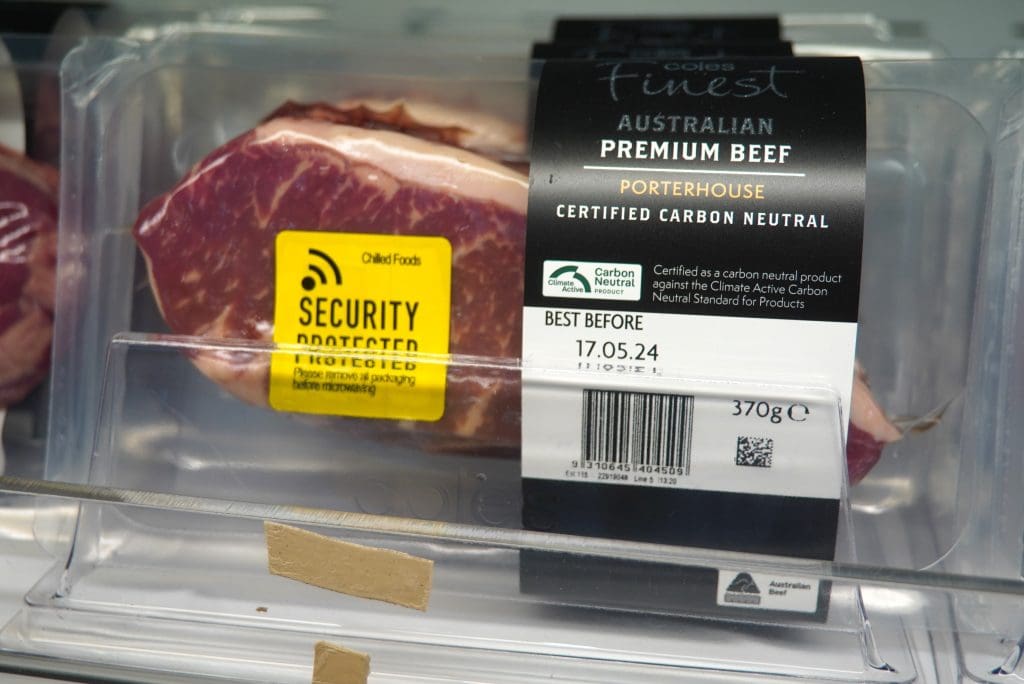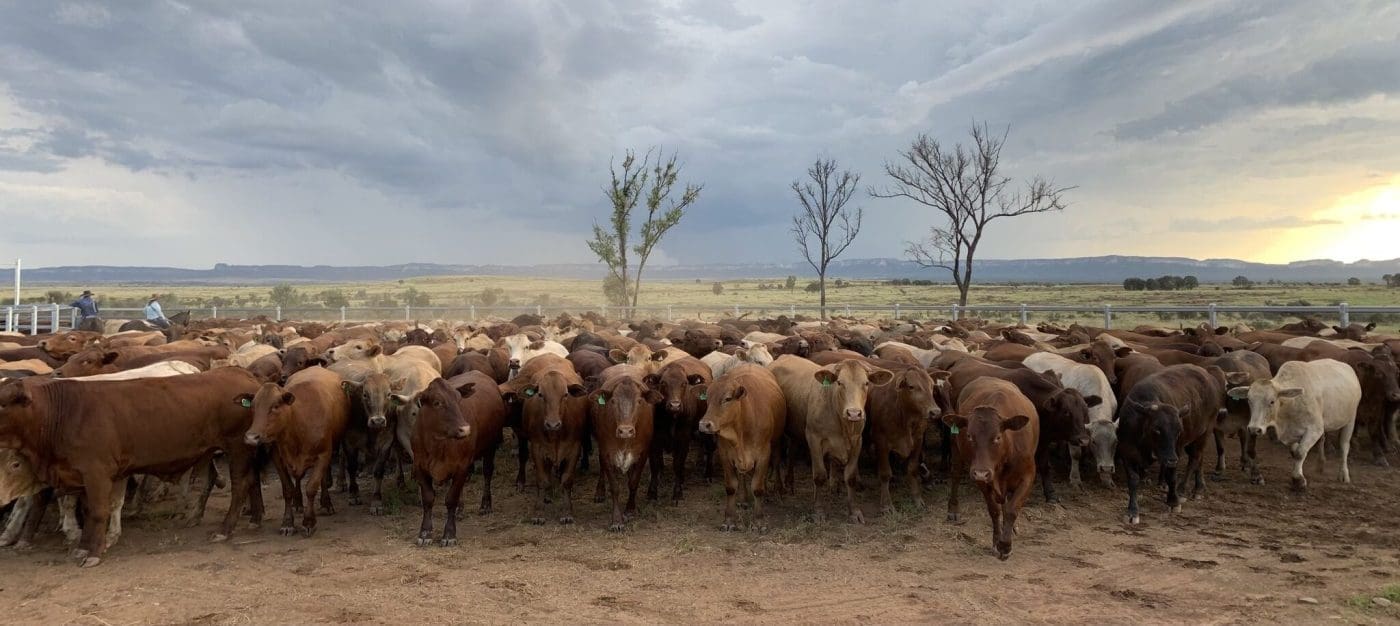Editor’s note: Since this article was first published, we have received a requested comment from DSM, the manufacturer of Bovaer in Switzerland. See bottom of story
A DEVELOPING feed additive used to reduce methane from livestock has been the subject of a social media campaign in the past fortnight – with petitions circulating calling for a boycott of Bovaer.
Many involved in using the product have been surprised by the sudden outrage, given the extensive research into its safety and the high-profile nature of its development.
The campaign against it appears to have started overseas and was mostly aimed at dairy companies. It was then taken to Australia and aimed at the beef industry through former politician Craig Kelly, who took to social media highlighting a press release from supermarket chain Coles, which was championing a group of farmers using the product.
Mr Kelly was calling for clear labelling on meat that had been fed Bovaer and to boycott the products.
An intense reaction has followed the social media posts, with many asking questions of meat companies and Beef Central about which beef has been fed Bovaer.
The use of Bovaer has hardly been a secret, with companies trialling and using the product often rolling that out with a press release and marketing campaign about reducing emissions.
Bovaer (or 3-NOP) is one two types of feed additives, alongside seaweed asparagopsis, that have risen to prominence with targets from the meat industry and companies to reach net zero emissions. Both products are trying to grow from trial stage to commercial use.
DSM defends safety record of Bovaer
Mr Kelly has been specifically highlighting guidance, provided by the United States Food and Drug Administration (FDA), about how to use the product.
Not for human use. Caution should be exercised when handling this product. 3-nitrooxypropanol may damage male fertility and reproductive organs, is potentially harmful when inhaled, and is a skin and eye irritant.
Personal protective gear, including eye wear, a dust mask, and impervious gloves, should be worn when handling this product. Operators should wash hands after handling. If accidental eye exposure occurs, rinse eyes thoroughly with water.
In response to similar points made in a campaign in the United Kingdom, DSM (the Dutch company which owns Bovaer), said the safety guidelines were routine for a lot of products.
“The product safety sheet is a standard sheet which provides clear guidelines to people handling the product at processing facilities and ensures safe use,” the company said.
“Such procedures are quite common for feed supplements, such as vitamins, to ensure workers take appropriate measures (e.g., wearing masks and gloves) to avoid risks from small dust particles.
“Farmers can safely handle Bovaer in the recommended application form and by following standard safety instructions in line with regular on-farm practices.”
The human safety aspect of Bovaer has been closely scrutinised across Europe, North and South America and Australia, where the product is now approved for commercial use in almost 60 countries worldwide. None of the studies have raised any concerns.
One of the definitive studies on Bovaer’s risk to human health is this work, carried out in the European Union in 2022.
The only ‘risk’ that body of work appears to reference is the possibility of irritation from inhalation of dust when mixing the compound in stockfeed. Similar irritant ‘risk’ applies to thousands of products in everyday commercial use around the world – cement being just one of them.
Lack of clarity
Regardless of the legitimacy of the recent alarm over Bovaer safety, one of the common issues evident among recent consumers engaging on the topic on social media, and via Beef Central’s reader comment section, is a lack of clarity around exactly which beef products are produced from cattle fed the compound.
A prominent Sydney beef wholesaler with an active social media network of some 75,000 followers said he had received 15 inquiries from customers overnight asking whether certain products he stocked contained the compound.
“We had to tell them that in some cases, we weren’t sure,” he said.
To the best of Beef Central’s knowledge, there are only two locally produced beef brands where a Bovaer supplement is fed to cattle. Both are grainfed:

Coles Finest Carbon Neutral beef, produced with the aid of Bovaer, on display during Beef 2024
The first is Coles Supermarkets’ “Coles Finest – certified carbon neutral” range, sold nationally since April last year. The general beef offer from Coles is not produced from cattle fed Bovaer, and in fact the “Coles Finest” range – clearly marked in the packs illustrated here – represents only a tiny fraction of the retailers’ weekly turnover.
We have asked Coles for a comment.
The second is the North Australian Pastoral Co’s Five Founders grainfed beef brand range, a niche carbon neutral product mostly targeted at the export market but sold in a few domestic outlets including the Harris Farm supermarket chain.
Residues not found in Bovaer meat
Whether-or-not beef has come from cattle fed Bovaer is a moot point, according to a respected meat scientist Beef Central spoke to today. He said the feed additive residue had never appeared on meat that had been fed Bovaer.
A point DSM made in its statement.
“Provided it is used as recommended, Bovaer is fully metabolized by the cow and is not present in milk or meat, so there is no consumer exposure,” the company said.
“It never enters into milk and therefore does not reach consumers.”
The company its product was no risk to the health of animals. “Regulatory and scientific trials show that Bovaer poses no risk to health for consumers nor animals and it has no impact on milk production or reproduction.
“The supplement is specifically designed to break down in the cow’s digestive system and quickly decomposes into naturally occurring compounds already present in the rumen of a cow.”
Editor’s note: Since this article was first published we have received the response below from DSM, the manufacturer of Bovaer:
In a cow’s rumen, certain microbes help break down feed. This releases hydrogen and carbon dioxide. An enzyme combines these gases to form methane. We have developed a feed supplement called Bovaer, that suppresses one of these enzymes, so less methane gets generated. As it acts, the feed supplement is safely broken down into natural compounds, which are already present and processed by the cow’s normal digestive and metabolic processes. The active ingredient is therefore not found in milk or meat.
Safety and efficacy have been confirmed by many authorities globally, including EU, UK, Canada, Mexico, Brazil, Argentina, Japan, Korea, and many more. As you can see this also includes a number of major beef exporters.
As part of the regulatory market approval process in the EU and UK, a large set of toxicological tests need to be completed. These tests aim to determine what the safe level of use is of the product.
When Bovaer is used in the right way, as feed supplement for cows, there is no risk on fertility or reproductive organs for cows or humans. The document that is referred to is a product safety data sheet that is shared with feed suppliers to ensure they are taking the right precautions in their operations when working with concentrate forms of the product. These types of warnings are not uncommon and are part of standard practices in the feed sector.

